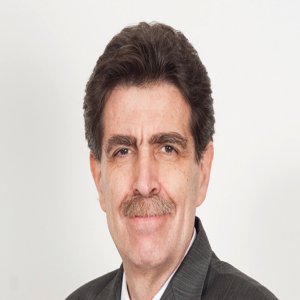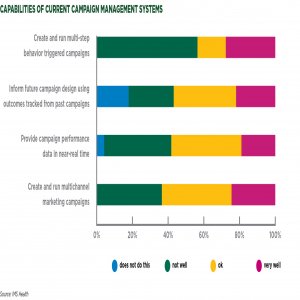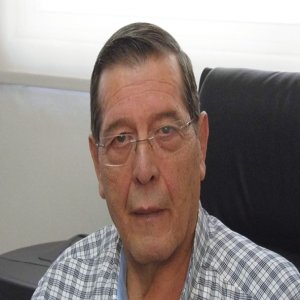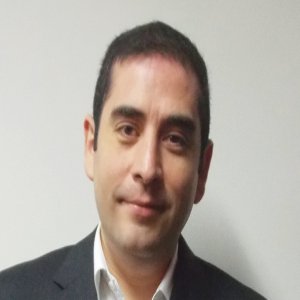Private Sector Principles, Public Service Motivations

STORY INLINE POST
Q: What are FUNDALUD’s greatest strengths?
A: FUNSALUD was founded 30 years ago as a private organization funded by Mexican businessmen. The 100 initial funders worked as a think-tank to connect private-sector ideas with public policy in health. As a think-tank we are ranked at number 12 in the world and our goal is to become the benchmark for private interactions with the public sector. One of our strongest points is our associates from the pharmaceutical industry, who keep us abreast of new innovations. Data on disease and technological trends helps us formulate public policy proposals, rather than simply promoting new developments. Our proposals are always independent and neutral, since we are not a PR company. FUNSALUD aims to produce policy documents to influence the public sector with scientific evidence. Ours is a neutral arena aimed at building consensus so that we can reach conclusions beyond political considerations or media presence. We eliminate conflicts of interests between industry and the public authorities, since after receiving funding from the private sector we leave the name of the company and the commercial brands aside. Therefore, the monetary contributions become neutral capital both for the Government and FUNSALUD.
Q: What are the most concerning things about health problems in the Mexican population?
A: Mexico’s population and society are changing rapidly. Our population is growing older and faces lower rates of infectious diseases and higher rates of chronic ones. Since the 1960s, our society has transitioned from a rural to a mostly urban makeup, with 72% of Mexicans living in cities. This has changed the way disease impacts society, with pollution, urban criminality, and poverty influencing the health of Mexico’s population. The rise of diabetes depends partly on this population shift, the changes it entails for nutrition habits, and other environmental factors. About 10 million Mexicans suffer from diabetes, making this a real epidemic. Among adults 20 years and older, 9.17% have been diagnosed with diabetes. Of all people with diabetes, 46.95% also have with hypertension, 4.47% have had a stroke, and 54.46% have a reported family background of diabetes. It is estimated that a large number of people are diabetic but undiagnosed, which is worrisome as diabetes is preventable and treatable if detected at early stages.
Q: Do you foresee a convergence between ISsSTE, IMSS, and Seguro Popular?
A: The very fragmentation of all three institutions makes the current model unsustainable in the long run. So convergence is inevitable, but we don’t know when it will happen. First there must be collaboration and coordination across hospitals and facilities regardless of the institution they belong to. Consolidated purchasing, referencing, and counter-referencing of patients are all basic and necessary. FUNSALUD first proposed universal health care between 2011 and 2012, but this as a process that will take from 20 to 30 years as the system must respond to long-standing problems, such as inefficiencies in expenditures and increased costs due to duplicated services. In this situation the one who suffers most is the patient, and so segments of the population already affiliated to public healthcare institutions are increasingly using private services. Recently, we have seen the appearance of health services in pharmacies. According to our research, from 50,000 to 60,000 doctors now provide consultations and issue prescriptions at the point of sale. Generally their professional profile is the same of those hired in the public sector and this service has the advantages of being close, efficient, and readily available. In our opinion, this form of privatization is not necessarily appropriate or helpful. These doctors do not provide a deep analysis and instead of clinical records, they provide brief commentaries. Moreover, because the phenomenon grew spontaneously, there are a variety of regulatory gaps to overcome. COFEPRIS has tried to regulate doctors at points of sale, but they do not have the capacity to monitor every one of them.
Q: To what extent are Mexico’s unique health problems a result of genetics and of lifestyle?
A: Recent works in genetics indicate a genetic predisposition to certain illnesses, but low physical activity and poor nutrition have a greater impact. The preference for leisure activities gravitates more towards TV and videogames and contemporary jobs encourage a sedentary lifestyle. Also in Mexico, exclusive breastfeeding during the first six months of an infant’s life is less frequent, which we observed in a survey on feeding habits subsequent to breastfeeding. Many children are already obese by the time they enter kindergarten or elementary school and that means that parents contribute decisively to the phenomenon of obesity. The responsibility for prevention strategies lies within the Secretary of Health, but without inter-institutional collaboration it will not be possible to solve the problem and measures such the taxation of soft drinks will be ineffective. Since this new tax was imposed in 2014, around MX$16 billion has been collected. However, not a single peso has reached the Secretary of Health as the funds went to the Treasury and were utilized for other purposes. In my opinion the collection from this tax should go to the health sector or to other sectors that could invest them in public health. Unfortunately, this is not in our current political culture. Integral collaboration is needed, from SAGARPA to the Ministry of Education. For instance, dietary habits cause problems, but the industry must produce healthier foodstuffs – so SAGARPA and the Secretary of Labor should be involved
Q: FUNSALUD has several initiatives for health promotion. What is involved in this type of program?
A: We run some specific projects as a consortium, funding those areas we seek to develop. For instance, breast cancer is on the rise and the country does not have enough human and financial resources to set up the right strategies and tools to tackle it. While breast cancer is considered treatable if detected at early stages, many cases only reach public services when they are already at critical stages and that places them beyond the capabilities of a public hospital. This causes more suffering for the patient and family, and more expenses for the system. For example, last year a huge expansion of the National Institute of Oncology (INCAN) was inaugurated and two weeks later it was already overcrowded. If all institutions are allowed to become critical, there will be no budget or talents that suffice. At present, these institutions have no exact figures for cancer patients, only estimates. FUNSALUD is leading an initiative to develop a national cancer registry together with the Secretary of Health, INCAN, and the Institute for Public Health. It will include both hospital and population based information at a national level. We are involving the pharmaceutical industry to provide adequate funding for this initiative.
Q: What other projects is FUNSALUD developing?
A: One of our successful initiatives is the repatriation of medical talent, including 150 highly qualified surgeons and scientists from the US. To do this, incentive programs were designed to match the incomes of Mexican medical professionals working in the United States. FUNSALUD also launched the initiative of the National Institute of Genomic Medicine (INMEGEN), which today is a strong and an influential institution. We want genetic medicine to have an influence on diabetes treatment among other non communicable diseases. To this end, FUNSALUD is backing an ambitious initiative from INMEGEN to repatriate more scientists as they complete their PHD postgraduate work. We are seeking to repatriate at least ten scientists over a ten-year period, with a US$106 million scheme called Cátedras de Excelencia Watson-México en Ciencias Genómicas. We also have established a joint collaboration with Nestlé. The Nestlé- FUNSALUD fund was established twenty years ago and supports scientific research and the generation of policy concerning nutrition. It is also a resource for scholarships to develop talent. This fund is a benchmark for the industry worldwide, not just in Mexico. Our goals for this year are to promote wider, deeper participation between public and private sectors, across all fields and through diverse formats, and to develop a public policy proposal on nutrition and obesity, along with the national registers for kidney disease and cancer. We are also planning to start an evaluation system for all hospitals, private and public, which we lack in Mexico.























